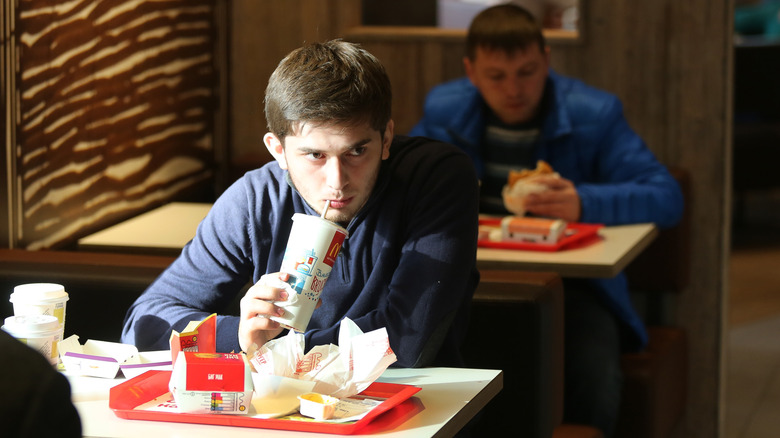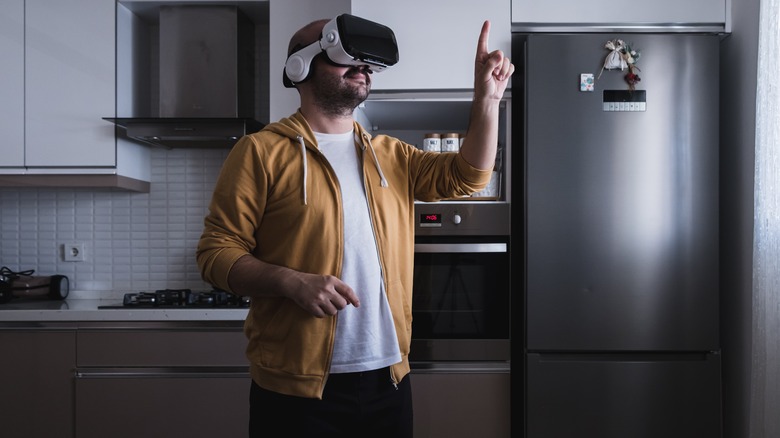Here's Why Restaurants Are Opening Locations In The Metaverse
In 1982 the term "metaverse" was strictly science fiction. According to Forbes, that was the year Neil Stevenson wrote his novel, "Snow Crash," which features characters who would break away from their daily, dystopian lives using a virtual world. Fast-forward to today, and, as Forbes explains, the term has come to mean "a fully immersive internet" incorporating augmented and virtual reality and using "persistent avatars." In other words – Meta CEO Mark Zuckerberg's to be exact — "You can think about the metaverse as an embodied internet, where instead of just viewing content — you are in it" (via The Verge). However you think about it, the metaverse has clearly gotten the attention of the restaurant industry.
A host of restaurant chains have shown interest in getting involved in the immersive space. Back in February, Business Insider reported McDonald's filed trademarks for a virtual version of its restaurant that could not only deliver food in the metaverse, but also in real life. Since then, Wendy's has announced plans to launch its contribution to the metaverse the "Wendyverse" (via Yahoo Finance), and Panera has also shown interest in joining the metaverse by filing a trademark for "Paneraverse." Though the names might not be entirely creative (even as we set a reminder to file a trademark for "Mashedverse"), there's a good reason restaurants want to open locations in the metaverse.
Restaurants could use the metaverse to enhance loyalty programs
Chances are, you belong to a loyalty program — or several. Bond's 2019 Loyalty Report surveyed over 55,000 people and found that, on average, consumers belonged to 14.8 loyalty programs, but were only active in 6.7 of them. Sixty-six percent of those surveyed also agreed with the statement, "I modify my Brand spend to maximize Loyalty benefits." Naturally, fast food chains want customers to be active in their loyalty programs and increase their brand spending, and the metaverse might just help with that.
QSR Magazine points out that gaming has been a major focus of the metaverse, including the development of use-cases for games like Fortnite and Minecraft. The publication explains how "gamification" could be leveraged for loyalty programs as well as discounts in a way that McDonald's beloved Monopoly program has been used in the past. Seemingly ahead of the game, Chipotle opened a virtual location last Halloween on Roblox that included a spooky, virtual maze and a chance for players to get their hands on free non-spooky, non-virtual burritos (via the Chipotle website). Other metaverse possibilities for restaurants that QSR examined included virtual play areas to lure children to their locations in the same way the brick-and-mortar play areas have traditionally done, exclusive content like concerts and sponsored events, and, perhaps most obviously, one more way to order food!

